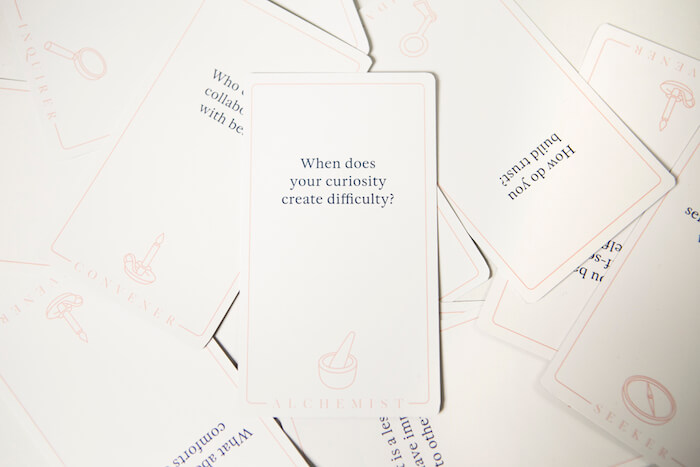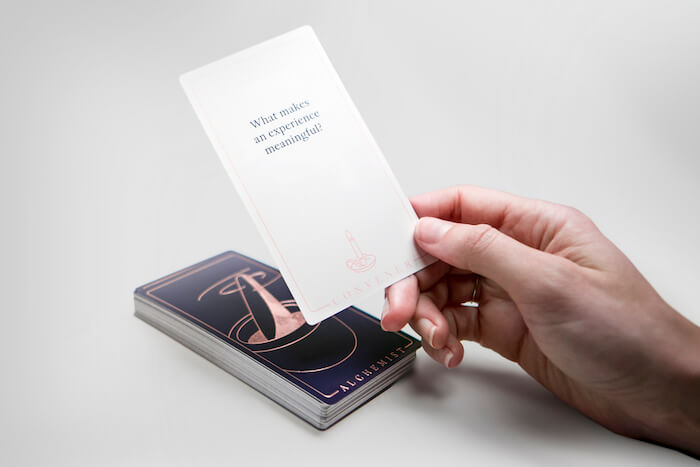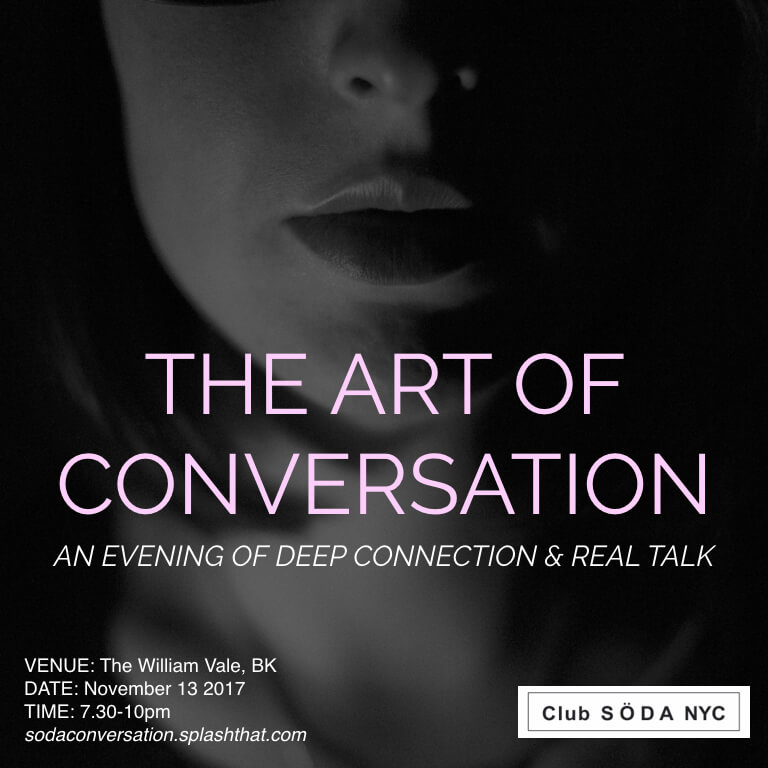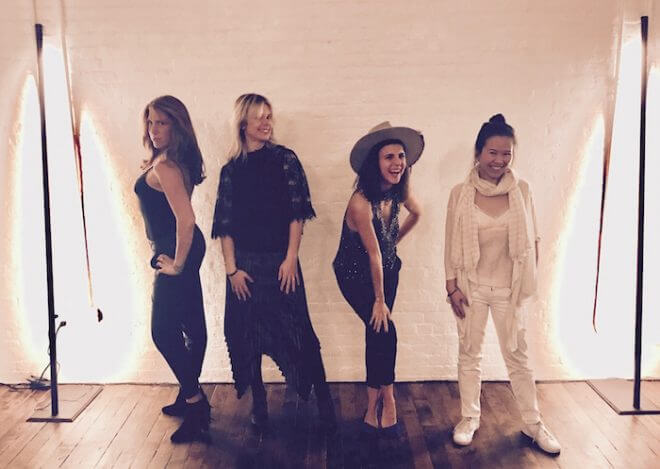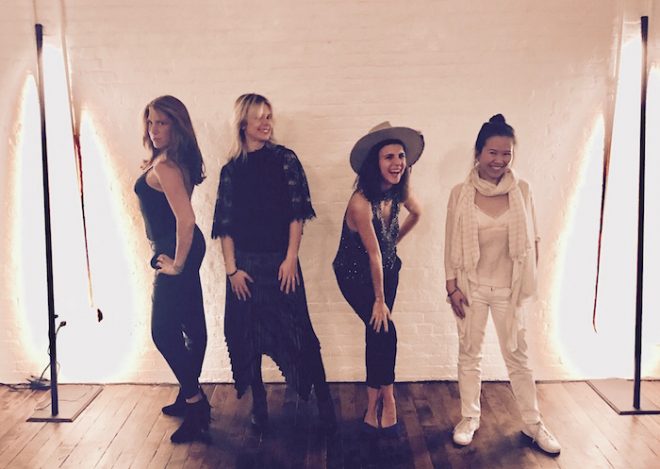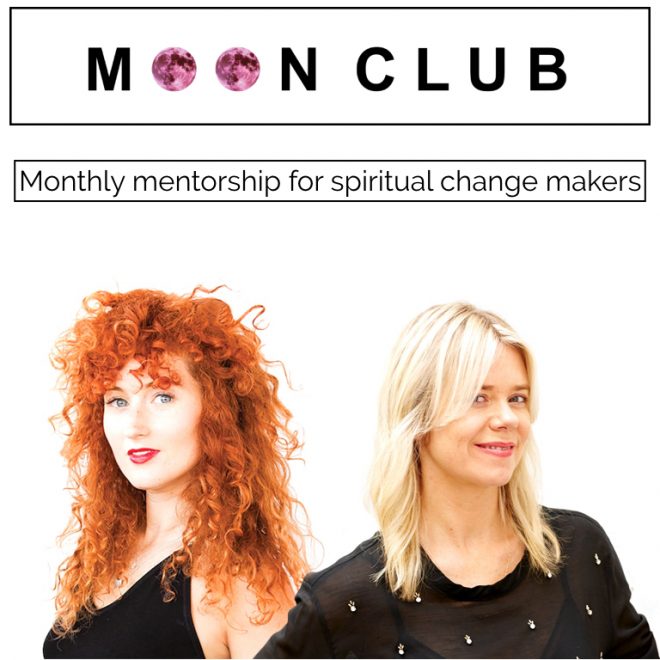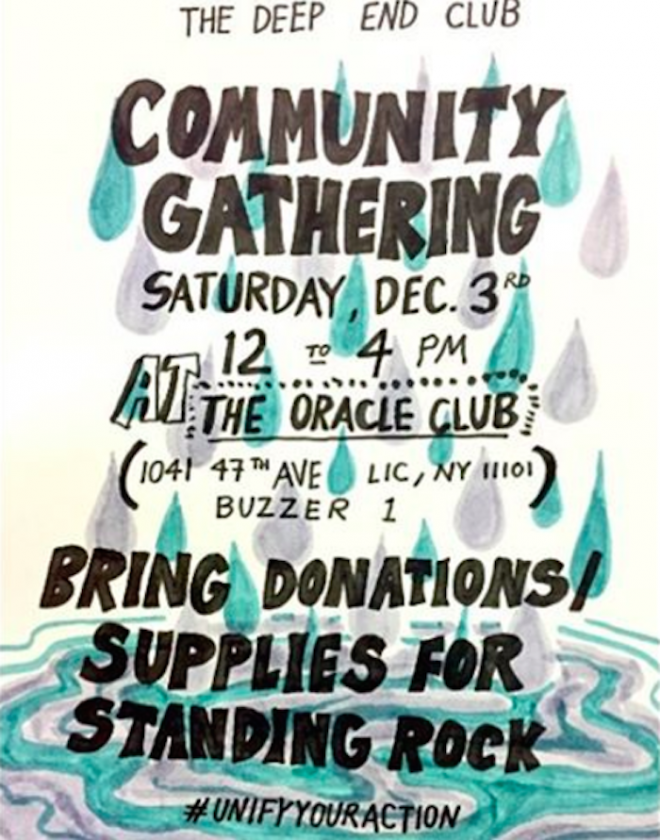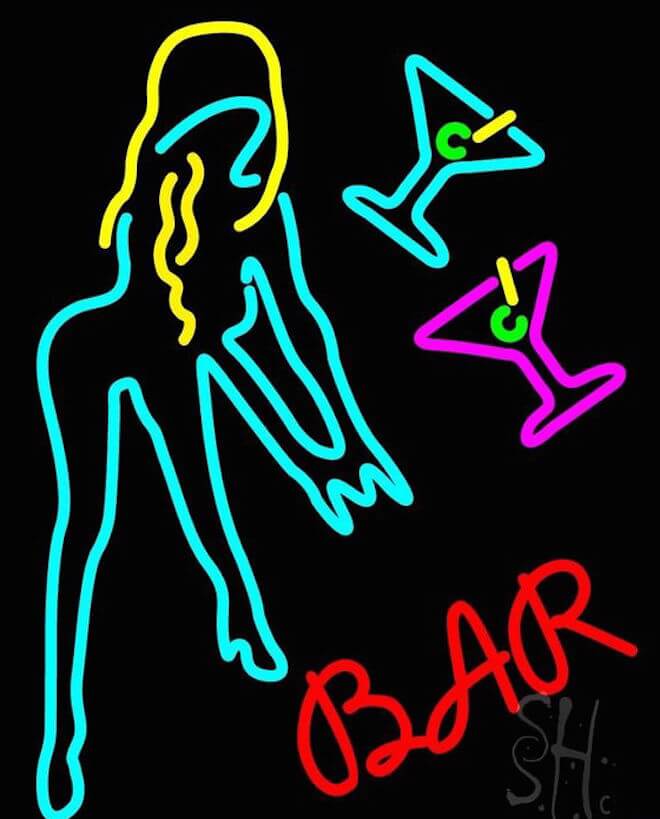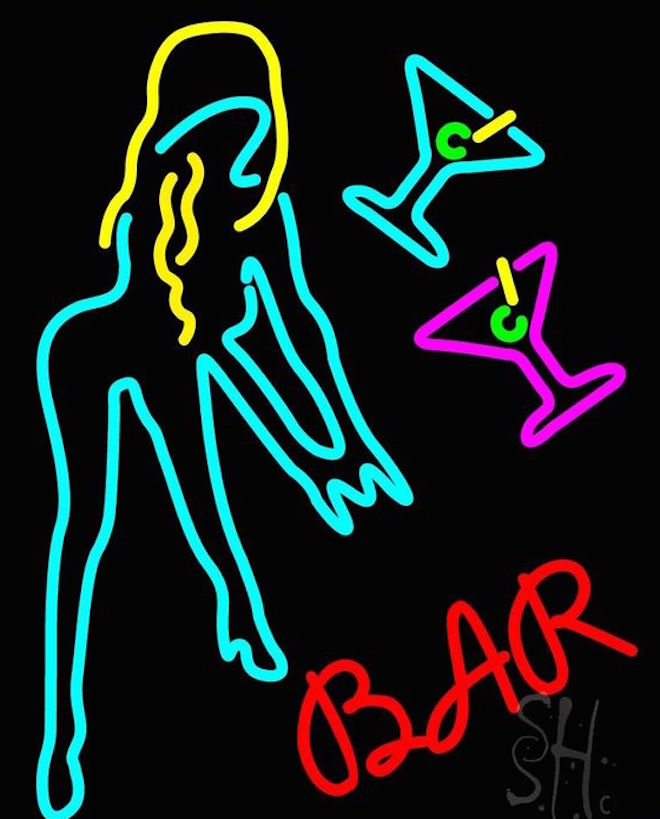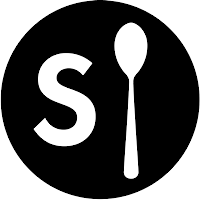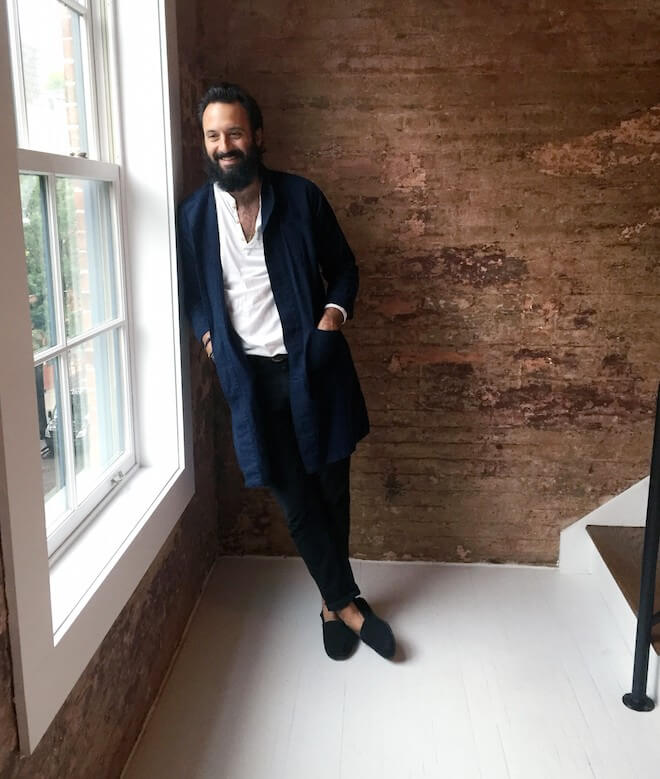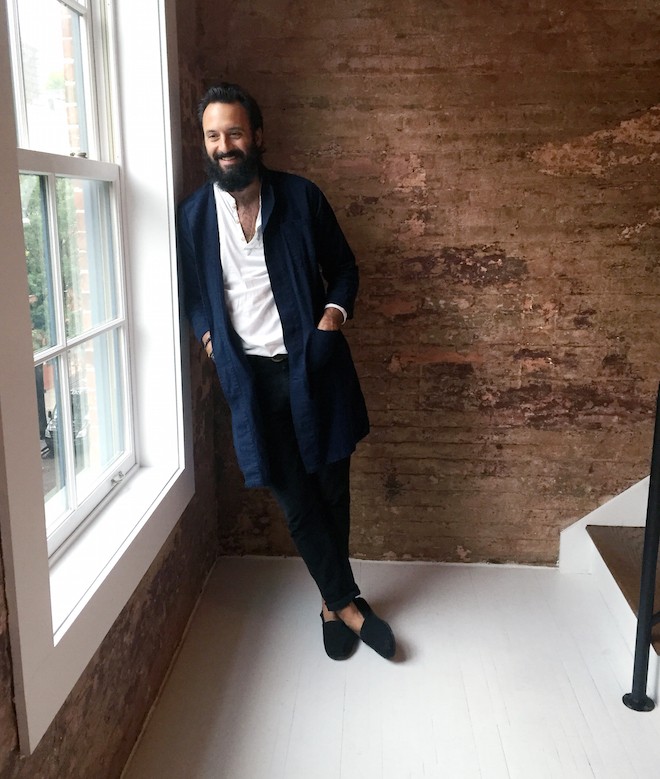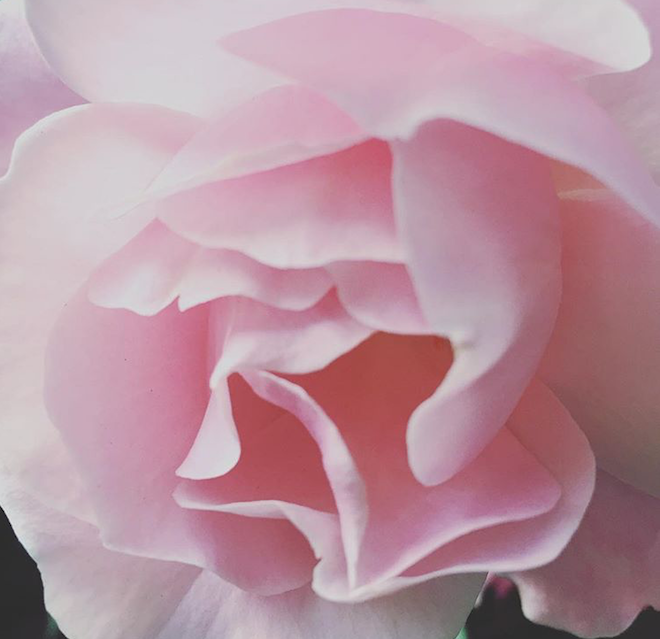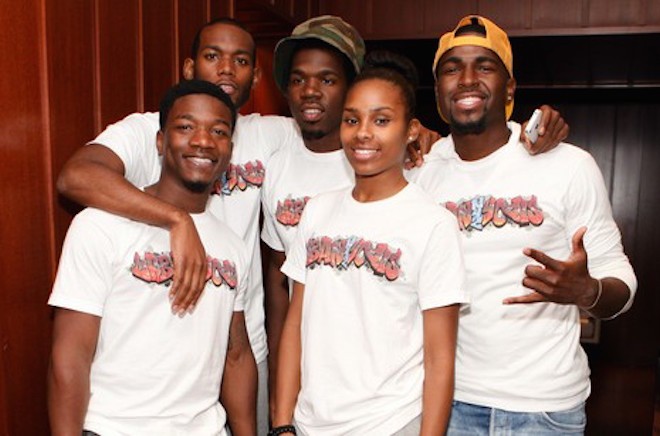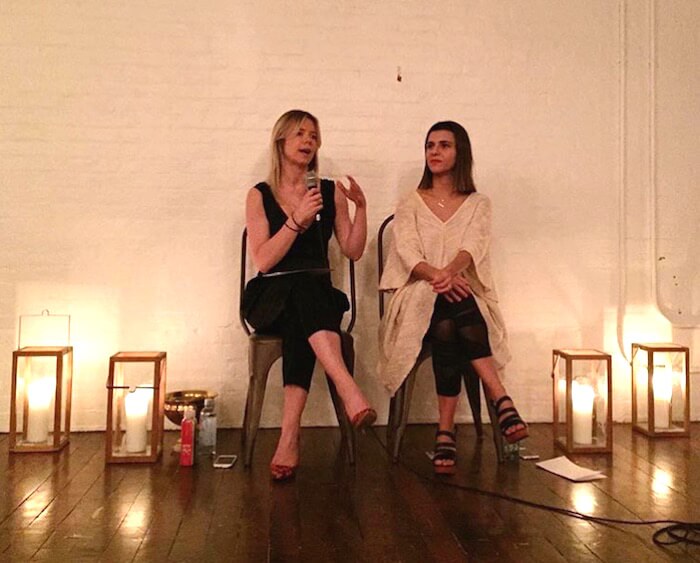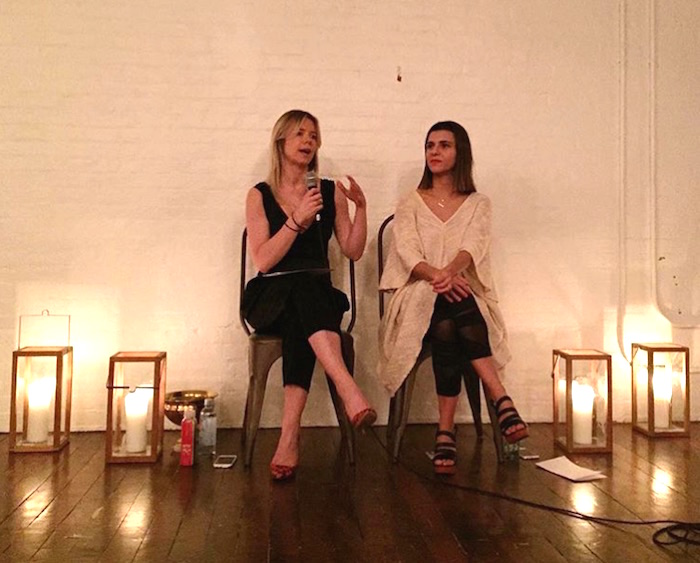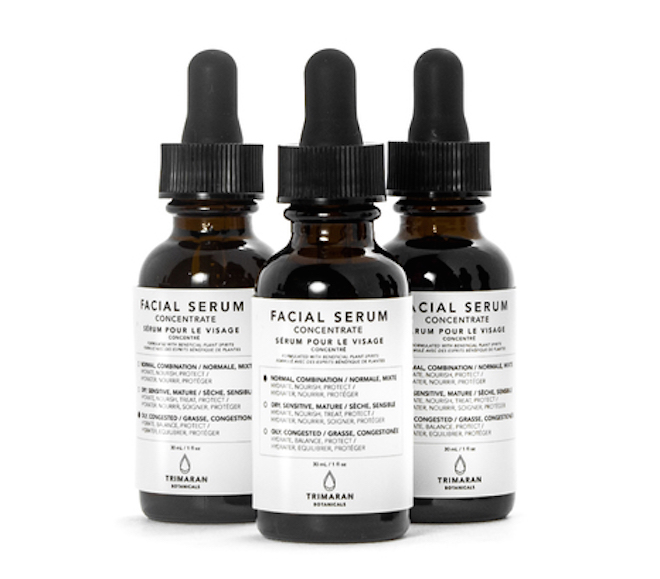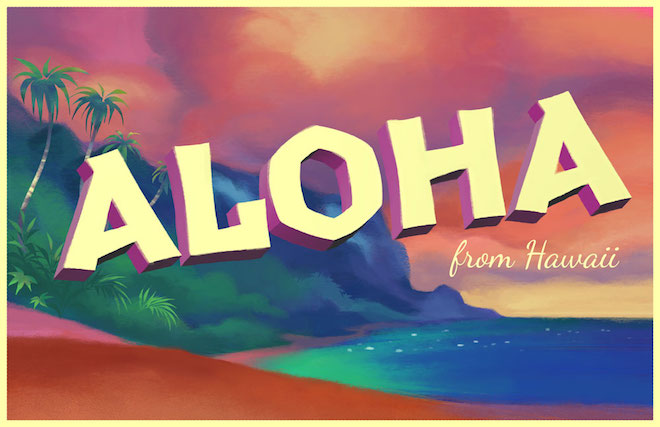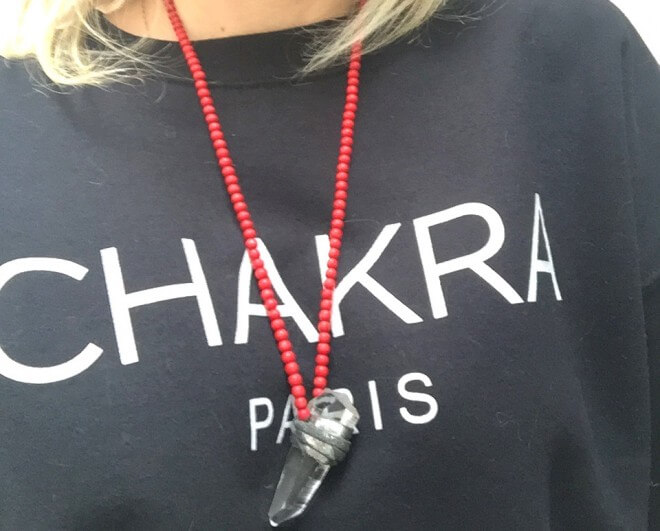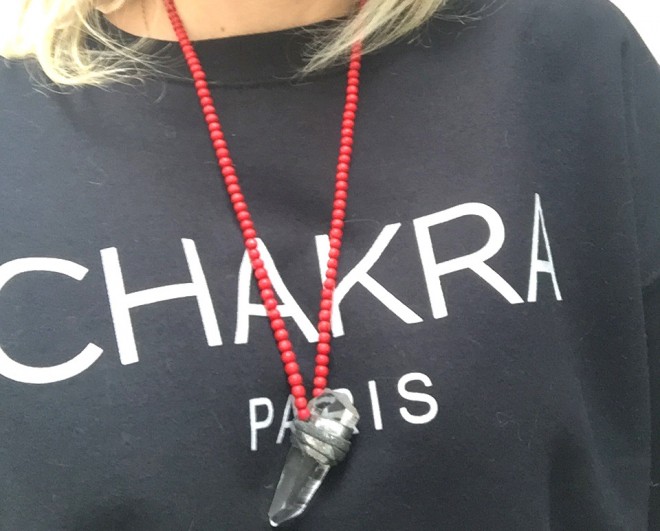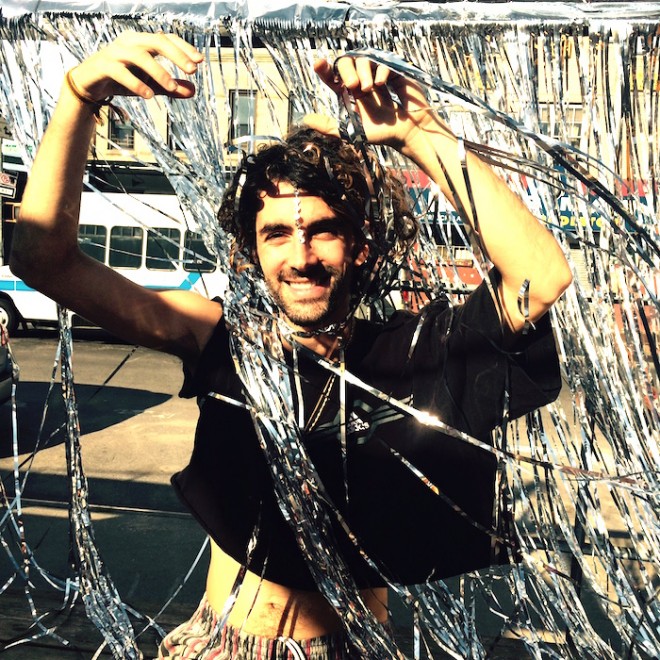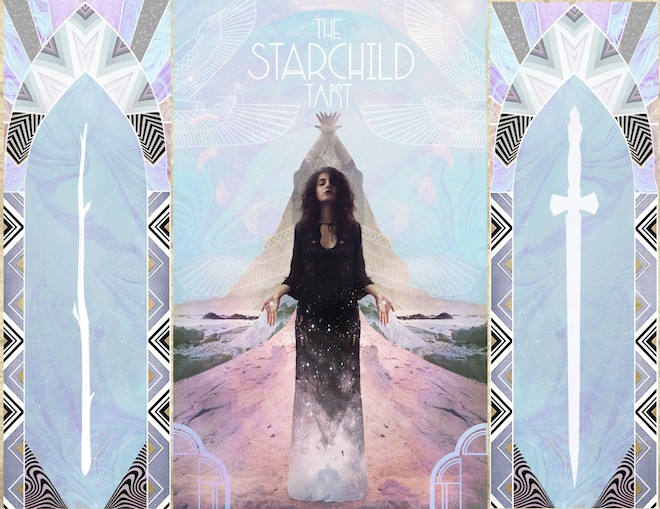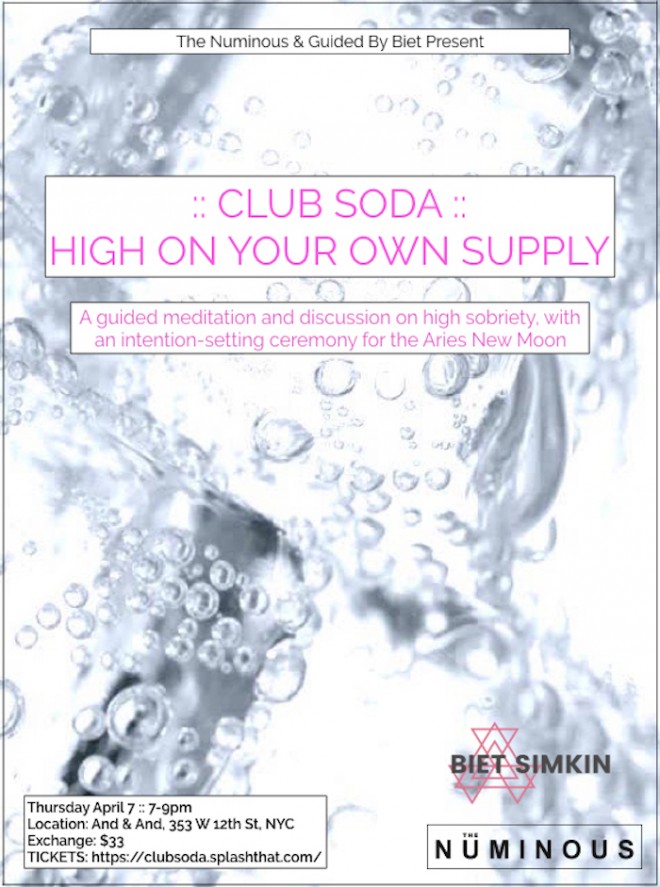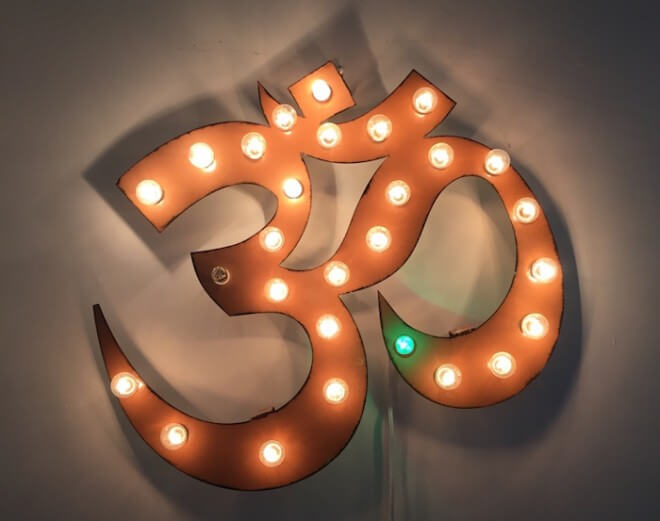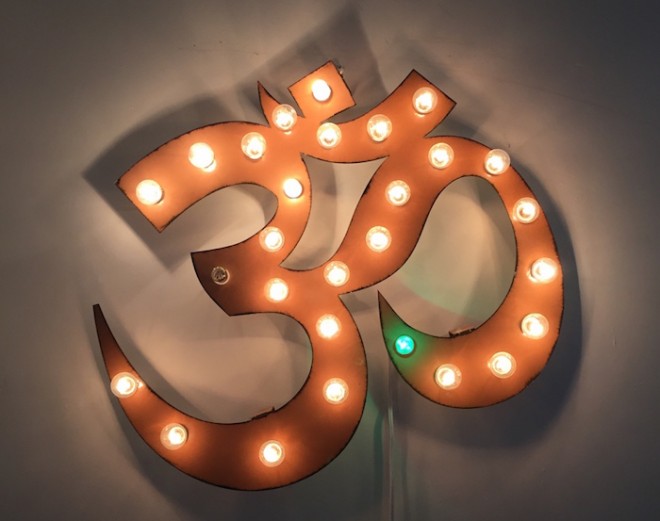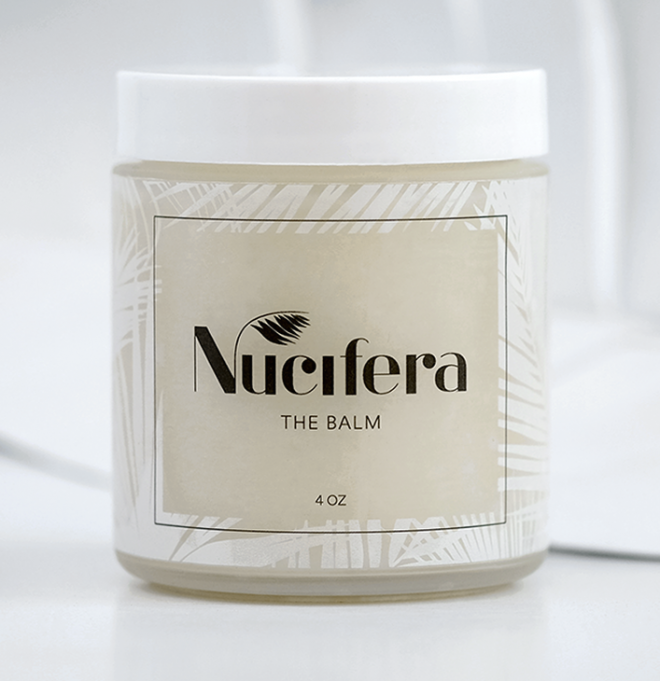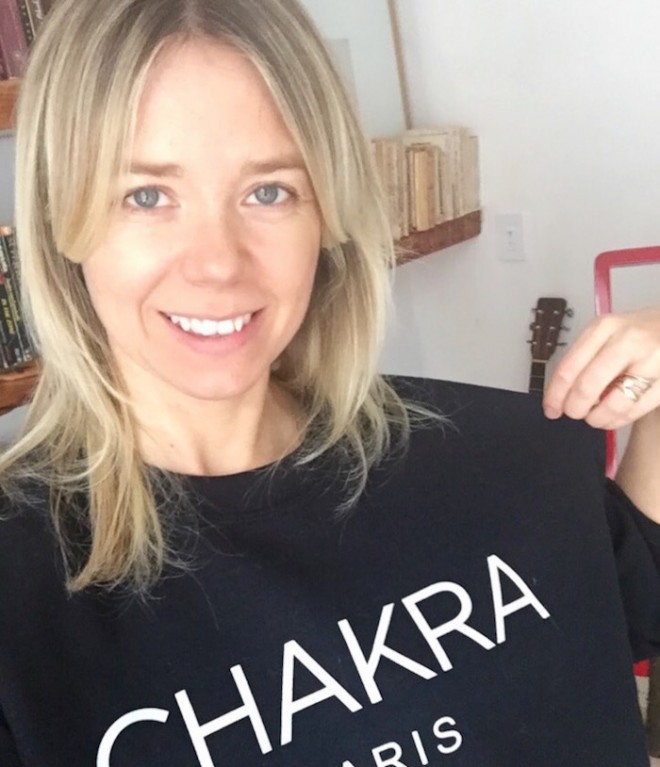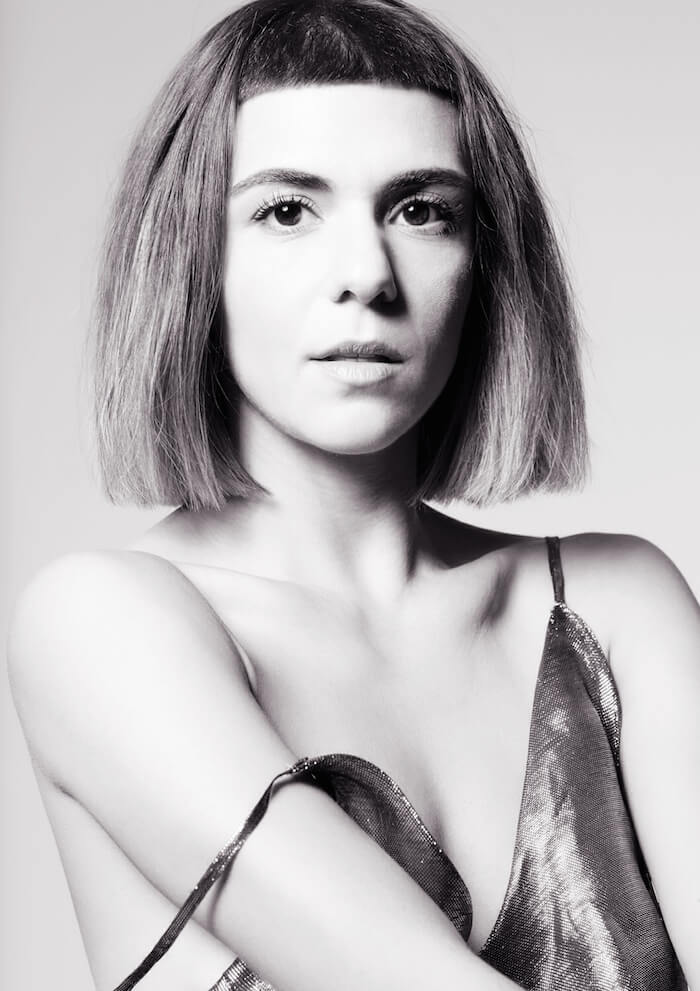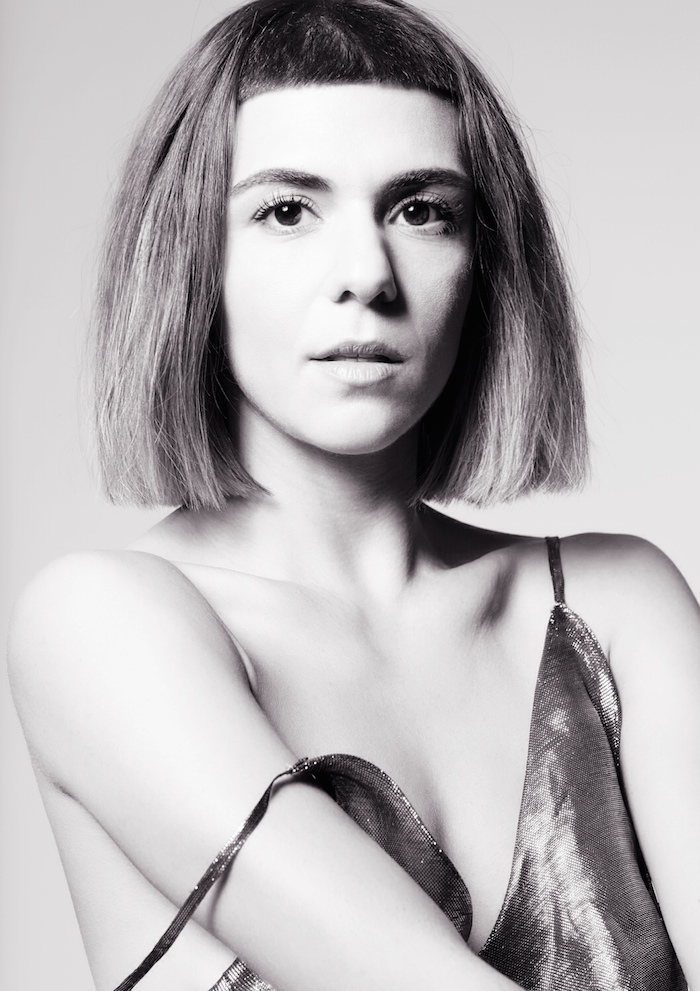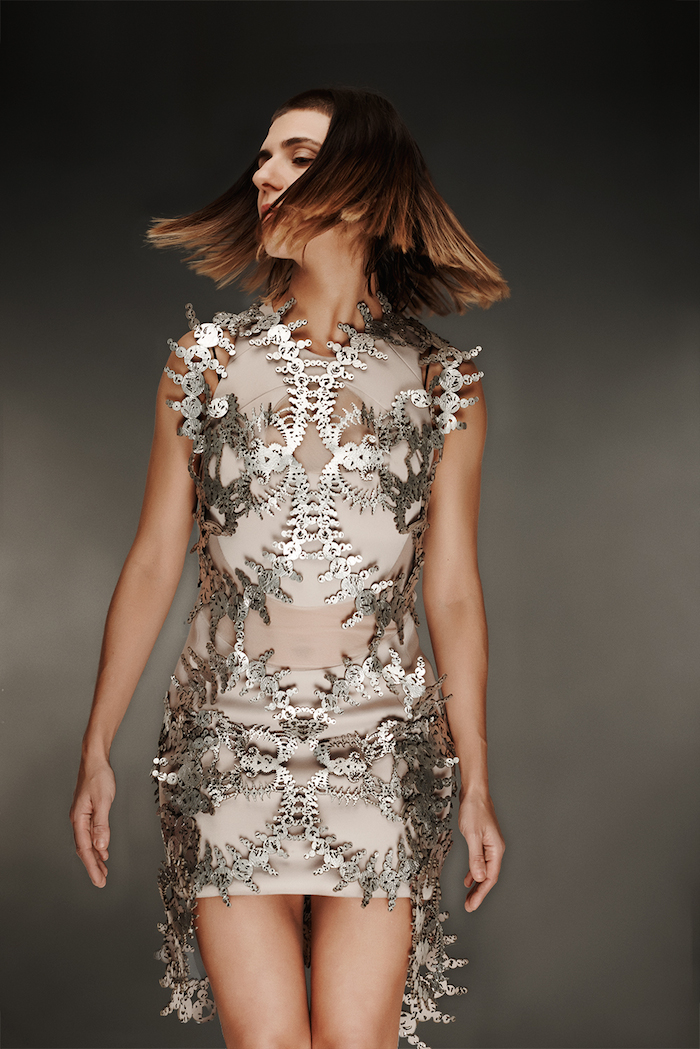Want less small talk and more real talk? Show up naked, and equipped with vast reserves of empathy. This is the art of conversation, says Ruby Warrington …
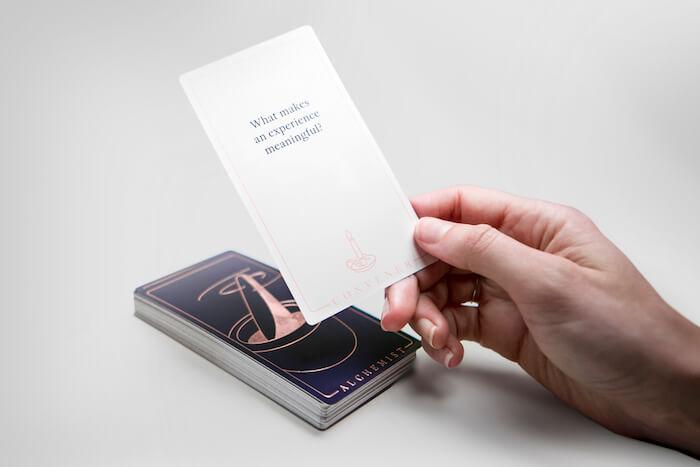
For the majority of my adult life, preparing for a “deep and meaningful” conversation with somebody meant stopping off en route for a bottle of wine. As if to go into the more shadowy, less well-trodden, and perhaps more vulnerable parts of our experience, some kind of anesthetic would be required. An “invisibility cloak” to keep the demons at bay, even as we sought to befriend and integrate them.
But putting on a mask and dressing up in bluster and bravado is not the best way to make friends. It’s better to show up naked.
Naked of expectation. Naked of judgement. Open to the possibilities. Armed only with our trust in own truths, and equipped with deep reserves of empathy.
These are the kinds of conversations Michael Ventura wanted to spark when he created Questions & Empathy, a 50-card deck designed to help move us swiftly beyond the small talk and dive right into the real talk. What can also feel like the scary, naked talk—and which is the talk we all secretly want to be having. All the time. No hiding, and no numbing.
Also the kinds of conversation we don’t get too much practice at. Which is why we themed our next Club SÖDA NYC event The Art of Conversation, and invited Michael along to curate a special evening of deep connection and REAL TALK.
You can discover more and sign up HERE, and read on for more about communication and the application of empathy …
>>>
RUBY WARRINGTON: How would you define “the art of conversation”?
MICHAEL VENTURA: All art forms, when at their best, come from a place of intuition and knowing. Conversation is no different. When we take the time to slow down our inner monologue, often confronting and attempting to subdue our ego in the process, we can get to a place where our true and authentic self begins to take charge. When in this state, conversation happens naturally. There’s a balance of listening and speaking. We connect. We see each other’s essential nature and there, in that moment, is where deep, meaningful connection is born.
RW: What was the particular situation or realization that made you want to dive deeper into this subject?
MV: For the past several years I have studied the idea of empathy, and more specifically, the application of empathy as a means to build rich understanding that can be used with intention. In this exploration, it became clear that there wasn’t a “process” or “framework” that was readily available. Very few of us receive a formal education in empathy. As a result, the ability of an individual to be empathic varies widely. I wanted to try and change this—creating tools and lessons that would ultimately help more of us build a comfort with this critical behavior.
RW: Why must we “apply” empathy in our interactions with others? Are we forgetting how to be empathetic? Why?
MV: I think about empathy like a muscle. If we don’t use it regularly, it can atrophy. It can become harder and harder for people to truly step outside of themselves and connect with another person if they don’t put in the work. I believe we are all born with the ability to be empathic, it’s just that some of us don’t work that “muscle” enough.
RW: What was your process for creating the “Questions & Empathy” card deck? What is the theory behind them?
MV: My colleagues (at my company Sub Rosa) and I began to develop Q&E by starting with the creation of 7 key “empathic archetypes.” Think of these like the major arcana in tarot. We wanted to identify certain forms that empathy takes and the behaviors associated with them. The cards utilize these archetypes—providing different empathic perspectives you can “try on” and work with. Unlike other personality tests (e.g. Meyers-Briggs), I believe each of us actually embodies all 7 of the archetypes—just not in equal measure. The point of the cards is to help you identify your strengths and weaknesses, and then work with the questions in the deck to ultimately “limber up,” giving you more dexterity and comfort with each one.
RW: What are some of the different ways the cards can be used—and how do you use them in your own life?
MV: There are lots of ways I use the cards. In workshop settings, we utilize the cards to help participants discover what archetypes they identify with the most / least and then work collaboratively with each other to improve their empathic skills. On a more informal basis, I’ve heard of people using them at dinner parties or as a more contemplative alternative to games like Cards Against Humanity.
Personally, one of the ways I think you can get the most out of them is to create what we call an “empathy journal.” On the first day, you’ll define empathy in the journal—describing your personal take on the topic and how skilled you believe yourself to be. You’ll then ask yourself a question each day, ultimately progressing through all 49 cards in the deck. On the 50th day, we ask that you reflect back on the process and re-define empathy from this newfound perspective. It’s a powerful exercise that can expand and empower you to be more comfortable with this valuable behavior.
RW: How have you seen people transform using the cards—over the course of an evening, or in the wider context of their lives?
MV: At the end of the day, the world needs empathy now more than ever. These cards aren’t a silver bullet, but they are a great start to the process. Using them brings new awareness to our empathic gifts and will undoubtedly aid you in not only understanding others better, but perhaps more importantly, understanding your truest self.
Michael Ventura has designed special exercises for you to practice the Art of Conversation at our next Club SÖDA NYC event. Monday November 13 2017, The William Vale, 7.30pm. Info + sign-up HERE. The Questions & Empathy card deck will be available for purchase on the night.
